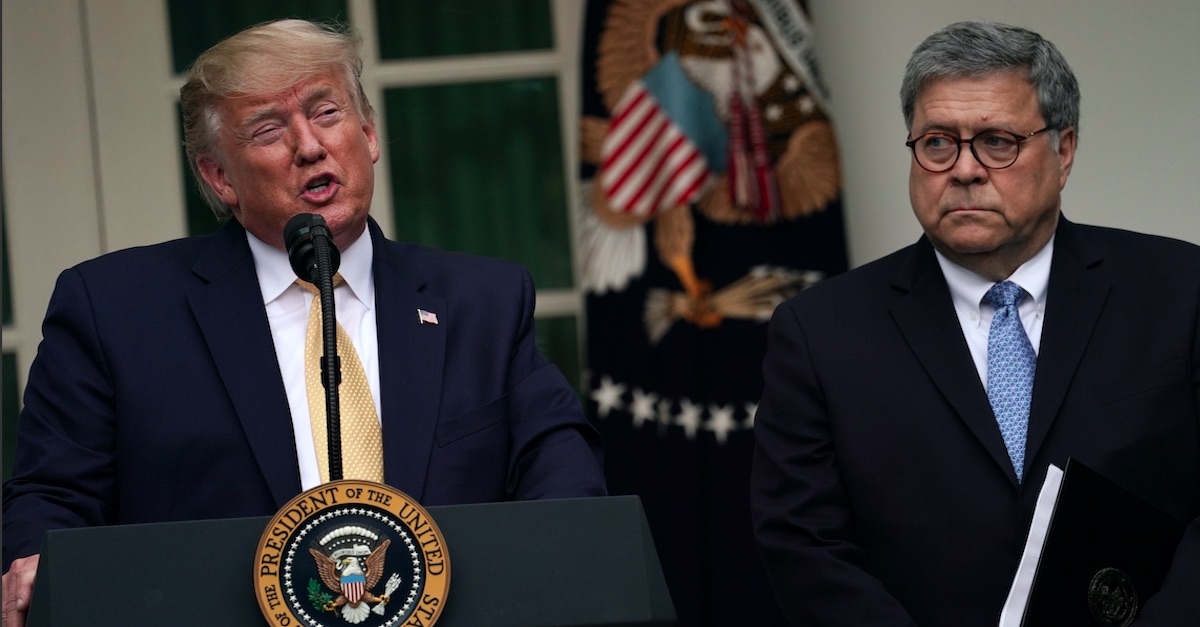
It was only a matter of time until this one was filed.
A bloc of plaintiffs have banded together for a lawsuit asking the U.S. District Court for the District of Columbia to block the Trump Administration from trumping state “greenhouse gas emission standards for automobiles and light duty trucks” with federal, “uniform fuel economy standards.”
In case you missed it on Thursday, the Environmental Protection Agency (EPA) announced in a press release the advent of “One National Program Rule on Federal Preemption of State Fuel Economy Standards.” The development, said to be a “top priority” of President Donald Trump, was described as follows:
Today, the U.S. Department of Transportation’s National Highway Traffic Safety Administration (NHTSA) and the U.S. Environmental Protection Agency (EPA) took an initial step towards finalizing the proposed Safer, Affordable, Fuel-Efficient (SAFE) Vehicles Rule by issuing a final action entitled the “One National Program Rule,” which will enable the federal government to provide nationwide uniform fuel economy and greenhouse gas emission standards for automobiles and light duty trucks.
Included in the press release were statements from Secretary of Transportation Elaine Chao (Republican Senate Majority Leader Mitch McConnell’s wife) and EPA Administrator Andrew Wheeler.
Chao said that the point of the rule was to ensure that “no State has the authority to opt out of the Nation’s rules, and no State has the right to impose its policies on the rest of the country.” Wheeler, for his part, called this a “critical element of President Trump’s commitment to address and fix the current fuel economy and greenhouse gas emissions standards.”
“One national standard provides much-needed regulatory certainty for the automotive industry and sets the stage for the Trump Administration’s final SAFE rule that will save lives and promote economic growth by reducing the price of new vehicles to help more Americans purchase newer, cleaner, and safer cars and trucks,” Wheeler continued.
Chao, the Department of Transportation, the National Highway Traffic Safety Administration (NHTSA), NHTSA Acting Director James C. Owens, and the United States were all named as defendants in the Friday lawsuit. The plaintiffs were numerous: California, Colorado, Connecticut, Delaware, Hawaii, Illinois, Maine, Maryland, Minnesota, Nevada, New Jersey, New Mexico, New York, North Carolina, Oregon, Rhode Island, Vermont, Washington and Wisconsin; the Commonwealths of Massachusetts, Pennsylvania and Virginia; the People of the State of Michigan; the District of Columbia; and the Cities of Los Angeles and New York.
Essentially, the plaintiffs are arguing along the lines of a Los Angeles Times column on this subject. The headline (and thesis) of that column: “Can Trump legally revoke California’s clean air waiver? Probably not.”
In the plaintiffs’ own words, the Preemption Regulation should be “declared unlawful and set aside because it exceeds NHTSA’s authority, contravenes Congressional intent, and is arbitrary and capricious.” They would add that the NHTSA has “failed to conduct the analysis required under the National Environmental Policy Act (“NEPA”).” The plaintiffs asserted that the administration’s rule unlawfully “preempts state laws that regulate greenhouse gas emissions from new passenger cars and light trucks,” and flies in the face of California’s “longstanding” ability to regulate emissions standards:
California has had emissions standards for light-duty vehicles for 60 years. And the California standards at issue in this case are longstanding and fundamental parts of many State Plaintiffs’ efforts to protect public health and welfare in their states, to meet state goals for the reduction of harmful air pollution including greenhouse gases, and to attain or maintain federal air quality standards. Indeed, the California standards are one of the most effective state policies to reduce greenhouse gases and other pollutant emissions from the transportation sector.
You can read the rest of the lawsuit below.
As Law&Crime reported earlier in September, the Department of Justice initiated an antitrust investigation into Ford, BMW, Honda and Volkswagen after the automakers agreed to cut tailpipe emissions in excess of the standards proposed by the Trump Administration.
Trump’s DOJ was said to be looking into whether the automakers violated federal anti-competition laws when they agreed to build cars in line with more stringent standards suggested by state authorities in California. The Trump Administration opened the first salvo in the automobile emissions battle by opting to gut and roll back several pro-environment rules and standards issued near the end of the Obama Administration.
In July, the deal to increase gas mileage standards and reduce greenhouse gas emissions was announced by California Gov. Gavin Newsom (D) with a statement that singled out Trump’s decision to backtrack on environmental protection.
“Regardless about what the Trump Administration determines in the next few weeks, this is the direction we’re headed in,” Newsom said at the time.
Automakers also issued a joint statement which subtly criticized Trump’s environmental policies:
Ensuring that America’s vehicles are efficient, safe and affordable is a priority for us all. A 50-state solution has always been our preferred path forward and we understand that any deal involves compromise. These terms will provide our companies much-needed regulatory certainty by allowing us to meet both federal and state requirements with a single national fleet, avoiding a patchwork of regulations while continuing to ensure meaningful greenhouse gas emissions reductions.
California v. Chao et al. Complaint by Law&Crime on Scribd
Colin Kalmbacher contributed to this report.
[Image via Alex Wong/Getty Images]
Have a tip we should know? [email protected]